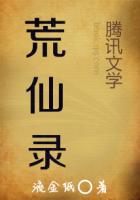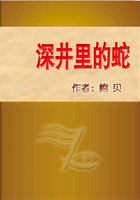So long as the country was broken up into independent principalities, and each land-owner was almost an independent Prince on his estate, the peasants easily found a remedy for these abuses in flight. They fled to a neighbouring proprietor who could protect them from their former landlord and his claims, or they took refuge in a neighbouring principality, where they were, of course, still safer. All this was changed when the independent principalities were transformed into the Tsardom of Muscovy. The Tsars had new reasons for opposing the migration of the peasants and new means for preventing it. The old Princes had simply given grants of land to those who served them, and left the grantee to do with his land what seemed good to him; the Tsars, on the contrary, gave to those who served them merely the usufruct of a certain quantity of land, and carefully proportioned the quantity to the rank and the obligations of the receiver. In this change there was plainly a new reason for fixing the peasants to the soil. The real value of a grant depended not so much on the amount of land as on the number of peasants settled on it, and hence any migration of the population was tantamount to a removal of the ancient landmarks--that is to say, to a disturbance of the arrangements made by the Tsar. Suppose, for instance, that the Tsar granted to a Boyar or some lesser dignitary an estate on which were settled twenty peasant families, and that afterwards ten of these emigrated to neighbouring proprietors. In this case the recipient might justly complain that he had lost half of his estate--though the amount of land was in no way diminished--and that he was consequently unable to fulfil his obligations. Such complaints would be rarely, if ever, made by the great dignitaries, for they had the means of attracting peasants to their estates;but the small proprietors had good reason to complain, and the Tsar was bound to remove their grievances. The attaching of the peasants to the soil was, in fact, the natural consequence of feudal tenures--
an integral part of the Muscovite political system. The Tsar compelled the nobles to serve him, and was unable to pay them in money. He was obliged, therefore, to procure for them some other means of livelihood. Evidently the simplest method of solving the difficulty was to give them land, with a certain number of labourers, and to prevent the labourers from migrating.
There are plain indications in the documents of the time that the great dignitaries were at first hostile to the adscriptio glebae.
We find a similar phenomenon at a much more recent date in Little Russia. Long after serfage had been legalised in that region by Catherine II., the great proprietors, such as Rumyantsef, Razumofski, Bezborodko, continued to attract to their estates the peasants of the smaller proprietors. See the article of Pogodin in the Russkaya Beseda, 1858, No. 4, p. 154.
Towards the free Communes the Tsar had to act in the same way for similar reasons. The Communes, like the nobles, had obligations to the Sovereign, and could not fulfil them if the peasants were allowed to migrate from one locality to another. They were, in a certain sense, the property of the Tsar, and it was only natural that the Tsar should do for himself what he had done for his nobles.
With these new reasons for fixing the peasants to the soil came, as has been said, new means of preventing migration. Formerly it was an easy matter to flee to a neighbouring principality, but now all the principalities were combined under one ruler, and the foundations of a centralised administration were laid. Severe fugitive laws were issued against those who attempted to change their domicile and against the proprietors who should harbour the runaways. Unless the peasant chose to face the difficulties of "squatting" in the inhospitable northern forests, or resolved to brave the dangers of the steppe, he could nowhere escape the heavy hand of Moscow.*
The above account of the origin of serfage in Russia is founded on a careful examination of the evidence which we possess on the subject, but I must not conceal the fact that some of the statements are founded on inference rather than on direct, unequivocal documentary evidence. The whole question is one of great difficulty, and will in all probability not be satisfactorily solved until a large number of the old local Land-Registers (Pistsoviya Knigi) have been published and carefully studied.
The indirect consequences of thus attaching the peasants to the soil did not at once become apparent. The serf retained all the civil rights he had hitherto enjoyed, except that of changing his domicile. He could still appear before the courts of law as a free man, freely engage in trade or industry, enter into all manner of contracts, and rent land for cultivation.















